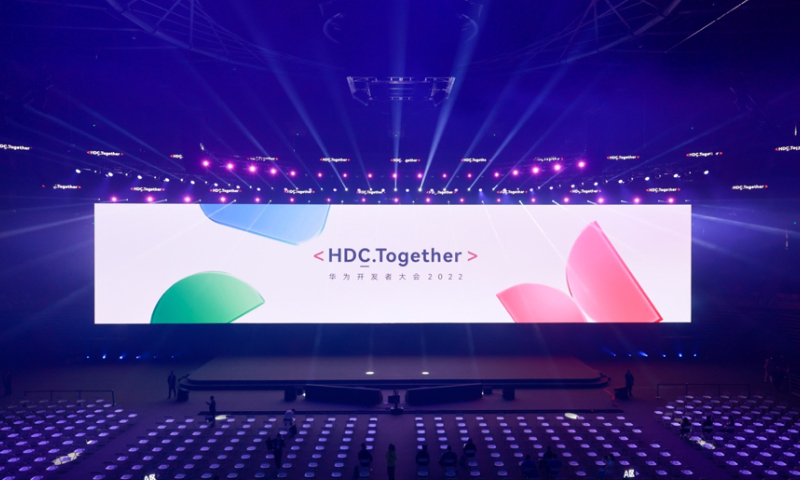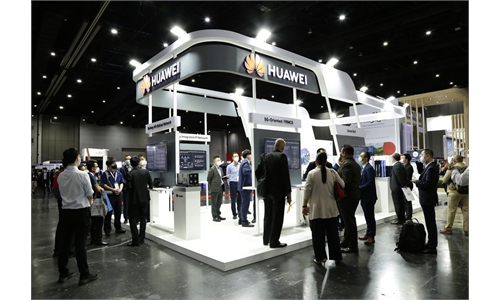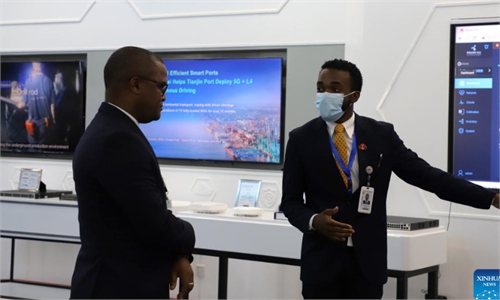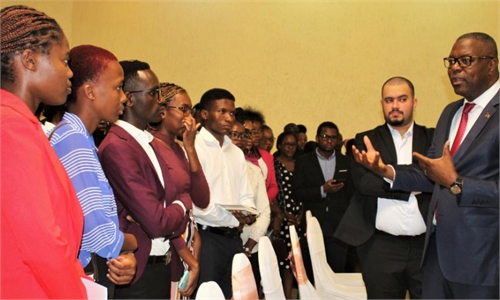
Photo: Courtesy of Huawei
Chinese telecommunications firm Huawei is now eying a bigger "Harmony World" as its self-developed HarmonyOS has gradually "developed into a mature ecological base" after four years of development, company chairman Yu Chengdong said on Friday.
According to Yu, the number of Huawei devices equipped with the HarmonyOS has reached 320 million, an increase of 113 percent over the same period last year. And shipments of HarmonyOS products exceeded 250 million, an increase of 212 percent over the same period last year.
The entire Harmony ecosystem has more than 2 million developers, Yu said, adding that Harmony's global mobile ecological services have also developed rapidly in overseas markets.
In September, Yu revealed that by the end of July, Huawei devices equipped with HarmonyOS had exceeded 300 million units, and the number of third-party devices equipped with HarmonyOS had exceeded 170 million. This makes it the fastest growing OS in history, Yu said.
The latest progress was announced during the 2022 Huawei Developer Conference (HDC), the firm's biggest event each year, which is held in the warm southern city of Dongguan, where Huawei's famous European-style Songshan Lake campus is located.
Developers, the media, students, analysts and Huawei fans known as "huafen" from across the country, are invited to gather at Huawei's massive campus during the event, which can reportedly house up to 25,000 employees.
The Shenzhen-based telecoms giant launched HarmonyOS in August 2019, three months after Google stopped providing its suite of proprietary mobile software services to the company due to US sanctions.
Rather than being a "replacement," the company stressed that HarmonyOS can be deployed across multiple devices, including smartphones, computers and other electronic devices. The OS has already been used in a wide range of devices including smartphones, PCs, tablets, smartwatches, and smart home appliances such as ovens. Huawei also developed an in-car version of the HarmonyOS for electric vehicles it has co-produced with Chinese carmaker Seres.
"After four years of development and continuous evolution, HarmonyOS has gradually developed into a mature ecological base," Yu said, vowing to join hands with global developers to build a "Harmony World."
At present, Huawei is still building up the capabilities of the operating system. It is trying to create something new in every step, Jiang Junmu, a Shanghai-based veteran industry expert and a close follower of Huawei, told the Global Times on the sidelines of the event on Friday.
For instance, Huawei disclosed on Friday that it is exploring possibilities for more services based on HarmonyOS in conjunction with Alibaba's widely used Alipay payment system. Users will soon experience an "atomized service card" that can allow them to pay utility bills and complete online payment more conveniently.
It also announced that it will newly open three capabilities designed for those with disabilities, including natural language interaction capabilities for the hearing-impaired, computational vision capabilities for the visually impaired, and elderly care capabilities.
As well as cooperating with more third-party apps to empower the OS, Huawei is applying the OS in more products such as cars, Jiang said, noting that the firm is now striving to promote hardware devices through its software capabilities.
On Wednesday, the company released its foldable Pocket S smartphone, equipped with HarmonyOS 3.0, starting from 5,988 yuan ($820). In addition to the new smartphone, the event also saw the unveiling of the Huawei watch GT Cyber, a new generation of all-in-one MateStation X, and other products.
"From the technical perspective of development of an operating system, the progress seems fast. But appliance and updates are still limited within its own devices so far, and more efforts are needed to build a robust software ecosystem for it," a veteran industry analyst told the Global Times on Friday.




